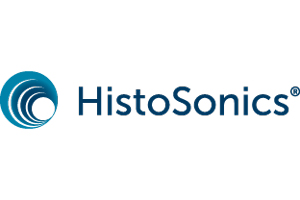The University of Michigan’s Wolverine Venture Fund, invested $150,000 in HistoSonics’ $8.3 million Series B financing round.
 The investment will help advance clinical trials of the U-M’s startup’s technology. HistoSonics developed a non-invasive, non-thermal surgery to reduce patient trauma and health care costs. It uses high-intensity focused ultrasound, in controlled pulses, to break down the cellular structure of soft tissue.
The investment will help advance clinical trials of the U-M’s startup’s technology. HistoSonics developed a non-invasive, non-thermal surgery to reduce patient trauma and health care costs. It uses high-intensity focused ultrasound, in controlled pulses, to break down the cellular structure of soft tissue.
Spencer Heaton, Wolverine Venture Fund’s healthcare team lead, an anesthesiologist, and a Ross School of Business MBA student, said he was struck by the startup’s potential.
“What’s noteworthy about HistoSonics is that its technology can potentially treat liver cancer — the only cancer in the U.S. that’s growing in both occurrence and mortality,” Heaton said. “HistoSonics has a lot of potential to meet this need.”
The Wolverine Venture Fund, the first student-run venture fund in the nation, launched in 1997 to provide Ross students with the opportunity to actively engage in the venture capital process. Seven U-M students worked on Wolverine Venture Fund’s investment in HistoSonics.
The fund is designed to earn a venture rate of return and to educate students on how to make venture investments and operate a venture capital fund. It invests in early-stage growth companies located throughout the United States. It is both a real world experience for students and an action-based-learning course. Students source deals, research companies and industries, evaluate investment proposals, and make the investment decisions.
“This deal shines a spotlight on the benefit to students who participate in the Wolverine Venture Fund program. You learn what investors are looking for, how to evaluate companies and understand how they create value for investors, customers, and partners,” Heaton said. “The experience builds upon everything you learn in the classroom; with Wolverine Venture Fund, you get real world experience, with real money and returns.”
The fund has $7 million assets under management. Since its inception, it has invested in more than 27 companies across a wide range of industries. Once fully established, other student funds followed – the Frankel Commercialization Fund in 2005 (now the Zell Lurie Commercialization Fund), the Social Venture Fund in 2009, the Zell Early Stage Fund in 2015 and the Zell Founders Fund in 2016. The funds are administered by the Samuel Zell & Robert H. Lurie Institute for Entrepreneurial Studies.
“It was a pleasure working with the Wolverine Venture Fund team,” said Christine Gibbons, chief operating officer of HistoSonics. “As a highly-skilled, cross-functional team, the due diligence was thoughtful, insightful and conducted very efficiently.”
Gibbons also thanked Heaton “who led the due diligence effort and, drawing upon his experience as a physician-scientist, brought discerning clinical insight into our discussions.”
This investment was the first time T-Gap Ventures, a venture capital firm that participated in this round of funding, worked with Wolverine Venture Fund. T-Gap’s Jack Ahrens, general partner, explained, “HistoSonics seemed like an ideal opportunity for Wolverine Venture Fund. It’s a relatively small investment that offers a pretty great potential for return. The company is early stage and can nimbly export its technology to new markets. Plus, since the technology came out of U-M, the due diligence was easier.”
